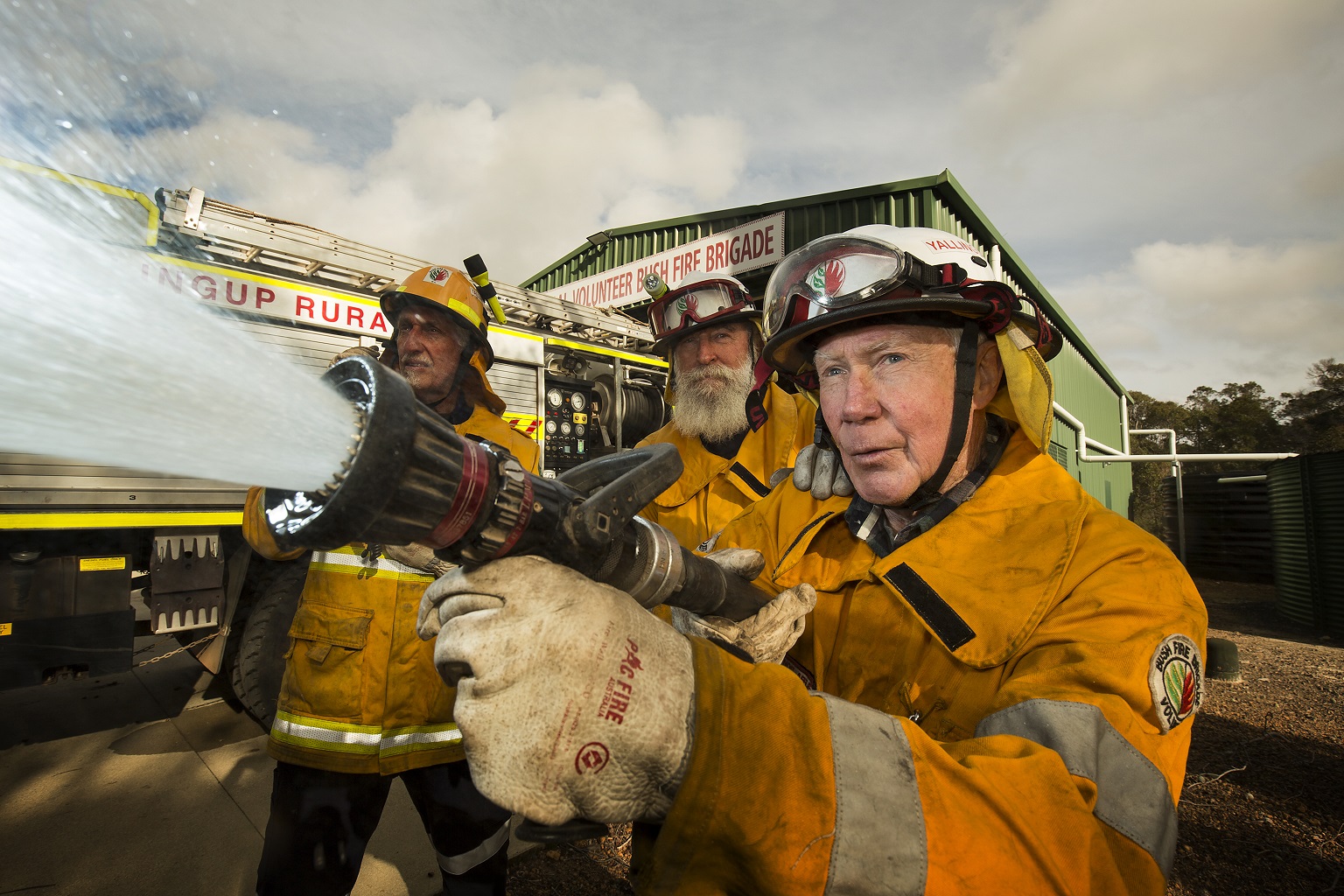
Safety is everyone's responsibility. Individual volunteer firefighters have a duty to look after themselves and not put themselves or others at unreasonable risk – make sure they're well trained and understand their responsibility
It's important that members have a reasonable and practical approach when dealing with volunteers as their time and availability may be limited.
Local governments, as the Person Conducting a Business or Undertaking (PCBU) should make every effort to make sure that volunteer bushfire fighters (VBF) understand their role and responsibilities when it comes to safety in the workplace.
The Work Health and Safety Act (WA) 2020 (WHS) has expectations, and outlines responsibilities, for PCBUs and individuals. When they're at work, VBFs must take reasonable care for their own health and safety and that of others who may be affected by their actions or omissions.
Importantly they must also comply, so far as they are reasonably able, with any reasonable instruction, policy or procedure given by the Local government to assist them in meeting their legislative WHS obligations.
In practice this means that it's important that all VBFs understand their individual roles and responsibilities for a safe workplace. They are expected to:
- Follow processes, procedures, and instructions
- Report all hazards and incidents
- Encourage and promote positive safety behaviours
- Participate in training when required
- Assist in risk management activities
- Communicate and consult on safety matters
- Take good care of equipment and use it correctly.
In addition to the above, providing additional education and awareness on the following topics may be advantageous:
Alcohol and drugs:
If a volunteer's ability to exercise judgement, motor control, concentration and alertness is impaired, it can lead to increased risk of injury or incidents. This includes legally prescribed and some over the counter medication.
Fatigue management
When a person has exceeded their physical and mental capabilities, their body begins to decrease in performance.
Heat stress
Here in WA, we can experience long periods of extreme heat which increases the risks when working on a fire ground. All volunteers need to take care of each other, particularly those with medical conditions.
Shift work
Getting enough sleep is the single most important factor for volunteer bushfire shift workers. Encourage your VBF to speak to their BFCO and/or senior brigade officers about any concerns and ensure they have sufficient rest between shifts.
Near miss and incident reporting
Bushfire volunteers need to understand how to report safety concerns and incidents. This ensures local governments are aware and can address any issues. It is vital local governments provide bushfire volunteers with guidance on the types of hazards and incidents that should be reported.
Resolution of safety and health issues
Having a health and safety issue resolution process promotes effective communication and consultation between the local government and the volunteers. The resolution of safety issues at the local level is vital in promoting a safe work environment.
Supporting volunteer bushfire fighters.
LGIS has developed a range of resources to support members and their valued volunteers in keeping safe. Make sure your logged into the LGIS website before clicking on the links below:
- Volunteer bushfire fighter handbook
- Bushfire volunteer job dictionaries
- Manual task risk assessment for volunteer bushfire fighters
To find all of LGIS' resources to manage and support volunteers check out the 'Managing volunteers' section of the LGIS website – Risk management>People risk management > managing volunteers
For support and advice on managing volunteer bushfire fighters talk to your Regional Risk Coordinator or the LGIS People Risk Team at peoplerisk@lgiswa.com.au
